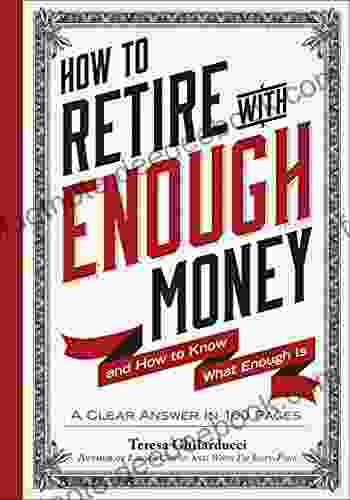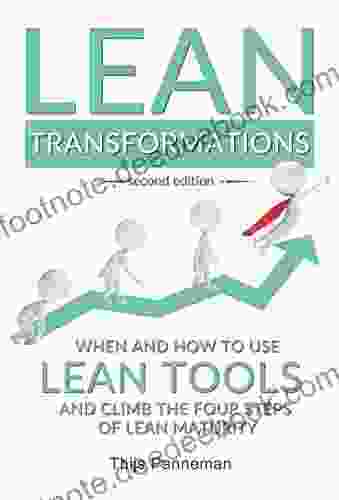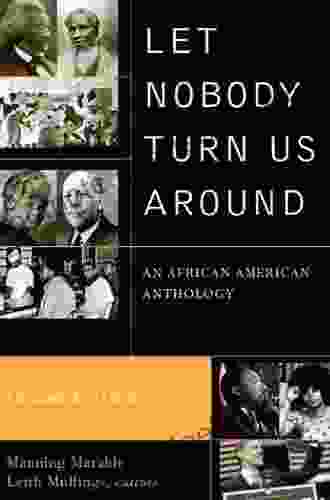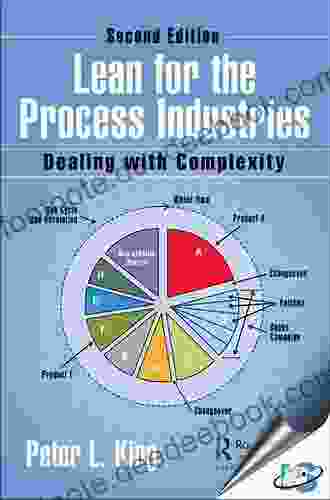Race, Media, and the Politics of Antipoverty Policy Studies in Communication

The relationship between race, media, and the politics of antipoverty policy studies in communication is a complex and multifaceted one. On the one hand, the media can play a powerful role in shaping public opinion about poverty and the poor. On the other hand, the media itself is often shaped by the same social and economic forces that contribute to poverty. As a result, the media can both perpetuate and challenge stereotypes about the poor, and it can both support and undermine antipoverty policies.
In this essay, I will explore the complex relationship between race, media, and the politics of antipoverty policy studies in communication. I will begin by discussing the history of media coverage of poverty in the United States. I will then examine the ways in which the media can both perpetuate and challenge stereotypes about the poor. Finally, I will discuss the role that the media can play in supporting and undermining antipoverty policies.
4 out of 5
| Language | : | English |
| File size | : | 6183 KB |
| Text-to-Speech | : | Enabled |
| Screen Reader | : | Supported |
| Enhanced typesetting | : | Enabled |
| Word Wise | : | Enabled |
| Print length | : | 303 pages |
| Lending | : | Enabled |
History of Media Coverage of Poverty in the United States
The media has a long history of covering poverty in the United States. In the early 20th century, poverty was often seen as a personal failing, and the media reflected this view. Poor people were often portrayed as lazy, shiftless, and irresponsible. This view of poverty was reinforced by the media's focus on individual stories of poverty. These stories often focused on the personal failures of the poor, rather than on the structural factors that contribute to poverty.
In the 1960s and 1970s, there was a shift in the way that the media covered poverty. The civil rights movement and the War on Poverty led to a greater awareness of the structural causes of poverty. The media began to focus more on the systemic issues that contribute to poverty, such as racism, discrimination, and lack of opportunity.
However, in the 1980s and 1990s, there was a shift back to a more individualized view of poverty. The Reagan administration's emphasis on individual responsibility and self-reliance led to a decline in support for social welfare programs. The media reflected this shift in public opinion, and began to focus once again on individual stories of poverty.
In recent years, there has been a growing movement to challenge the traditional media narrative about poverty. This movement has been led by scholars, activists, and journalists who are working to change the way that the media covers poverty. These individuals are arguing that the media needs to focus more on the structural causes of poverty, and less on individual stories of poverty. They are also arguing that the media needs to do a better job of representing the voices of the poor.
The Media's Role in Perpetuating and Challenging Stereotypes About the Poor
The media plays a powerful role in shaping public opinion about poverty and the poor. The images and stories that the media presents about poverty can shape the way that people think about the poor, and can influence the way that they respond to antipoverty policies.
The media often perpetuates stereotypes about the poor. These stereotypes can be harmful because they can lead people to make assumptions about the poor that are not true. For example, the media often portrays the poor as lazy, shiftless, and irresponsible. This stereotype can lead people to believe that the poor are responsible for their own poverty, and that they do not deserve help.
The media can also challenge stereotypes about the poor. By presenting positive images and stories about the poor, the media can help to change the way that people think about the poor. For example, the media can highlight the stories of poor people who are working hard to overcome poverty. These stories can help to challenge the stereotype that the poor are lazy, and can help to show that poverty is a complex issue that is not caused by individual failure.
The Media's Role in Supporting and Undermining Antipoverty Policies
The media can play a significant role in supporting or undermining antipoverty policies. By providing information about poverty and the poor, the media can help to raise awareness about the issue and can build support for antipoverty policies. For example, the media can report on the latest research on poverty, or can profile successful antipoverty programs.
However, the media can also undermine antipoverty policies. By perpetuating stereotypes about the poor, the media can make it more difficult to build support for antipoverty policies. For example, the media's focus on individual stories of poverty can lead people to believe that poverty is a personal failing, and that the poor do not deserve help.
The media can also undermine antipoverty policies by attacking specific policies or programs. For example, the media may criticize antipoverty programs for being too expensive, or for being ineffective. This type of criticism can make it more difficult for policymakers to support antipoverty policies.
The relationship between race, media, and the politics of antipoverty policy studies in communication is a complex and multifaceted one. The media can play a powerful role in shaping public opinion about poverty and the poor, and it can both perpetuate and challenge stereotypes about the poor. The media can also both support and undermine antipoverty policies.
It is important to be aware of the media's role in shaping public opinion about poverty and the poor. By understanding the media's biases, we can be more critical of the information that the media presents about poverty. We can also work to challenge stereotypes about the poor, and to build support for antipoverty policies.
4 out of 5
| Language | : | English |
| File size | : | 6183 KB |
| Text-to-Speech | : | Enabled |
| Screen Reader | : | Supported |
| Enhanced typesetting | : | Enabled |
| Word Wise | : | Enabled |
| Print length | : | 303 pages |
| Lending | : | Enabled |
Do you want to contribute by writing guest posts on this blog?
Please contact us and send us a resume of previous articles that you have written.
 Novel
Novel Chapter
Chapter Story
Story Genre
Genre Paperback
Paperback Newspaper
Newspaper Paragraph
Paragraph Bookmark
Bookmark Shelf
Shelf Synopsis
Synopsis Footnote
Footnote Scroll
Scroll Classics
Classics Narrative
Narrative Memoir
Memoir Encyclopedia
Encyclopedia Dictionary
Dictionary Thesaurus
Thesaurus Narrator
Narrator Character
Character Resolution
Resolution Catalog
Catalog Card Catalog
Card Catalog Borrowing
Borrowing Stacks
Stacks Archives
Archives Periodicals
Periodicals Research
Research Scholarly
Scholarly Reserve
Reserve Academic
Academic Special Collections
Special Collections Interlibrary
Interlibrary Literacy
Literacy Study Group
Study Group Dissertation
Dissertation Storytelling
Storytelling Reading List
Reading List Book Club
Book Club Theory
Theory Jamie Mackay
Jamie Mackay David Schoenbrod
David Schoenbrod Muneer Al Busaidi
Muneer Al Busaidi Wendy Hinote Lanier
Wendy Hinote Lanier Xist Publishing
Xist Publishing Joos Korstanje
Joos Korstanje Kathleen Duey
Kathleen Duey Michael A Bailey
Michael A Bailey Kirstin Chen
Kirstin Chen Montgomery Blair Sibley
Montgomery Blair Sibley Scott Marx
Scott Marx Matthew Fitzsimmons
Matthew Fitzsimmons Elizabeth Reyes
Elizabeth Reyes Basilio De Marco
Basilio De Marco Martha Buelt
Martha Buelt Bernadette Mcdonald
Bernadette Mcdonald Carole Anne Carr
Carole Anne Carr Frank Miniter
Frank Miniter Ed Greenwood
Ed Greenwood Manning Marable
Manning Marable
Light bulbAdvertise smarter! Our strategic ad space ensures maximum exposure. Reserve your spot today!

 Chase SimmonsThundering Tortoise Trio Junior Jianghu: Embark on an Epic Wuxia Adventure in...
Chase SimmonsThundering Tortoise Trio Junior Jianghu: Embark on an Epic Wuxia Adventure in... Ian McEwanFollow ·11.2k
Ian McEwanFollow ·11.2k Reginald CoxFollow ·12.1k
Reginald CoxFollow ·12.1k Charles ReedFollow ·11k
Charles ReedFollow ·11k Jake PowellFollow ·2.8k
Jake PowellFollow ·2.8k Mitch FosterFollow ·8.1k
Mitch FosterFollow ·8.1k Donald WardFollow ·12.1k
Donald WardFollow ·12.1k Banana YoshimotoFollow ·11.6k
Banana YoshimotoFollow ·11.6k Darrell PowellFollow ·13.8k
Darrell PowellFollow ·13.8k

 Allen Ginsberg
Allen GinsbergUnveiling the True Meaning of Enough: A Comprehensive...
: In the relentless pursuit of progress and...

 Clay Powell
Clay PowellHawker Hunter: The Jet Fighter that Shaped British...
Nestled in the halls of aviation...

 Alec Hayes
Alec HayesWhen and How to Use Lean Tools and Climb the Four Steps...
Lean is a management...

 Trevor Bell
Trevor BellVolume of Charlotte Mason Original Homeschooling: A...
Charlotte Mason's original...

 John Parker
John ParkerAscending Tristan da Cunha: A Comprehensive Guide to...
Prepare yourself for an extraordinary journey...
4 out of 5
| Language | : | English |
| File size | : | 6183 KB |
| Text-to-Speech | : | Enabled |
| Screen Reader | : | Supported |
| Enhanced typesetting | : | Enabled |
| Word Wise | : | Enabled |
| Print length | : | 303 pages |
| Lending | : | Enabled |












